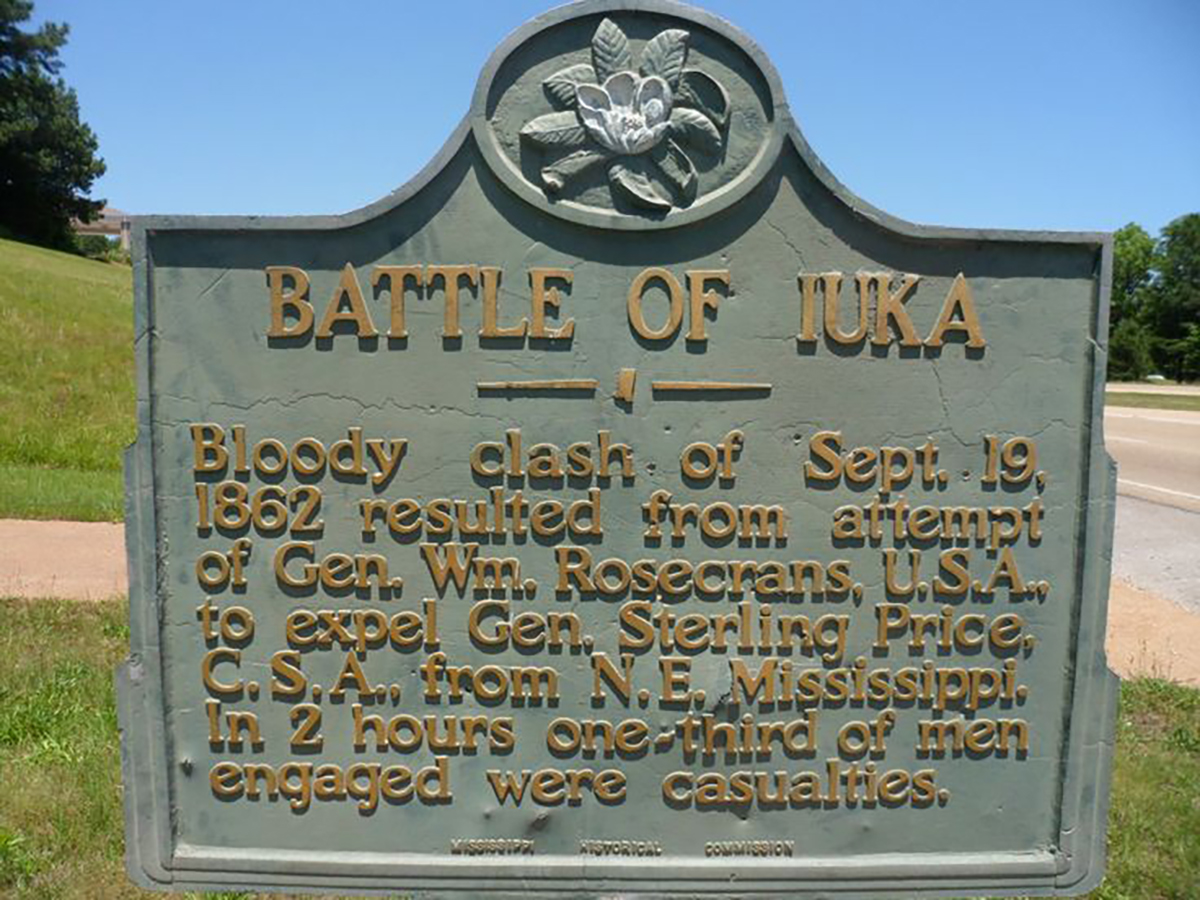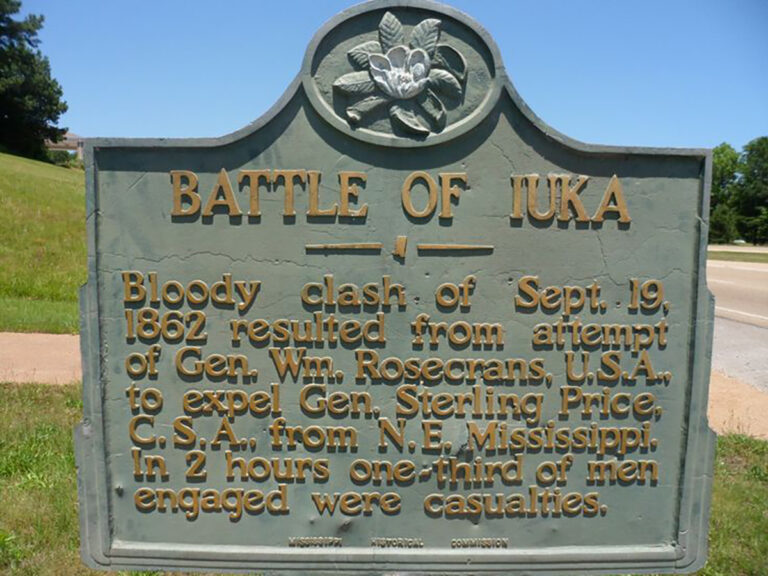Battle of Iuka
The marker is on Veterans Memorial Drive (State Highway 25), on the right when traveling south.
In the strategic chessboard of the Civil War, the Battle of Iuka emerges as a pivotal episode in the broader Confederate campaign into Kentucky. Under General Braxton Bragg’s orders, Major General Sterling Price marches into Iuka, aiming to thwart Union Major General William S. Rosecrans from reinforcing Nashville—a potential threat to Bragg’s forces.
Sensing the stakes, Union Major General Ulysses S. Grant orchestrates a plan to ensnare Price’s troops in Iuka. Major General E. O. C. Ord is tasked with advancing from the west, while Rosecrans coordinates a simultaneous attack from the southwest. However, delays plague Rosecrans, prompting Grant to instruct Ord to wait for the telltale sounds of conflict before engaging.
The battle unfolds with Price caught off guard, facing relentless assaults from both Ord and Rosecrans. The clashes are fierce and enduring, continuing into the night. The Battle of Iuka etches its name among the bloodiest of its time, claiming significant casualties on both sides, including the life of Confederate Brigadier General Henry Little.
Yet, amidst the chaos, a peculiar twist of fate occurs—neither Ord nor Grant hears the sounds of battle, a phenomenon known as the “acoustic shadow.” Despite the Union forces prevailing, they fall short of capturing or decimating Price’s army, allowing their escape to join Major General Earl Van Dorn at Ripley. Iuka is claimed by Union forces, but the unsuccessful pursuit of Price lingers.
The echoes of Iuka reverberate through subsequent conflicts, most notably the Confederate assault on Corinth in October 1862—an encore marked by yet another Union victory. The Battle of Iuka, with its complex interplay of strategy and circumstance, remains a vital chapter in the unfolding drama of the Civil War.







